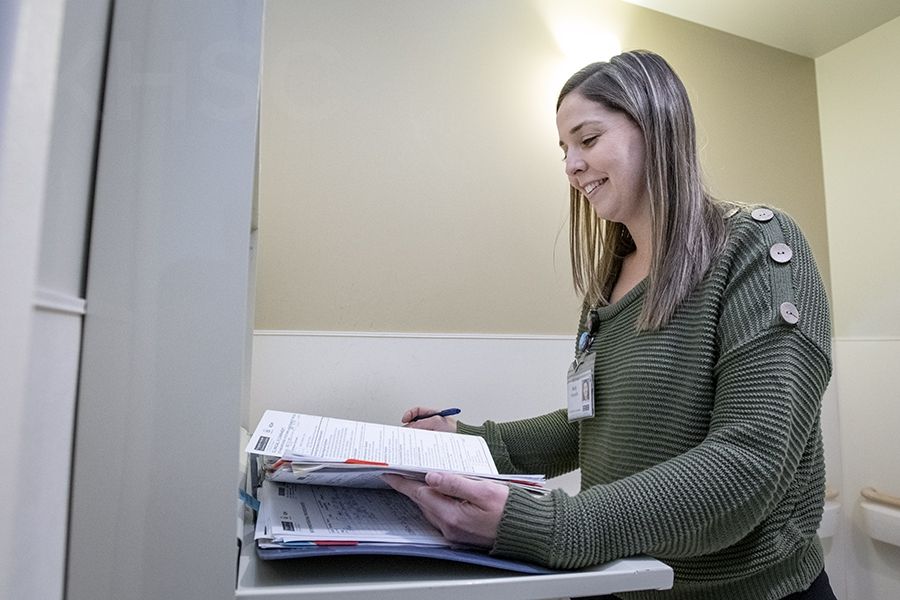
In its first year, KHSC @ Home – a partnership between Kingston Health Sciences Centre (KHSC) and Bayshore HealthCare – has helped over 230 people transition safely out of hospital by providing up to 16 weeks of care in their homes.
Early successes of KHSC @ Home include helping to speed people’s recovery and to relieve hospital capacity challenges. For example, the average number of days spent in hospital decreased by 56 per cent for patients in the program over a six-month period at the beginning of 2020, and the number of patients needing to visit the emergency department or be readmitted to hospital decreased by 36 per cent.
Another important benefit of the program for patients is the better connection between the hospital and primary care. Four per cent of patients did not have a family doctor before entering the program, and through the service were able to get attached to a general practitioner. As well, timely communication between the hospital and primary care means that the majority of patients are able to arrange a visit with their primary care providers within seven days of leaving the hospital.
“The people, mostly elderly, we serve with this program don’t always qualify for existing services to transition home because they have complex needs that require a wide range of highly individualized, flexible, short-term supports,” says Tom Hart, director of Integrated Care at KHSC.
Consider this: What happens when your fractured ankle has been casted, but you can’t go home because there are too many stairs to climb to reach your front door? Plus, you are the primary caregiver to your husband, who is with you in the emergency department and has dementia and can’t safely return home by himself.
Relying on the support of family to transition home might be a possibility, but if you don’t have close relatives nearby who can help, then what?
It’s a tough situation, and one that may result in people remaining in hospital for weeks or months receiving alternate level of care (ALC) until they were more able to cope at home.
Instead, in this type of scenario, KHSC @ Home coordinator Holly Krawaitis would have the option to admit the couple to the program and arrange the care they need in temporary accommodation in a retirement home. The services of the program would continue in their home, should they want to return there after regaining a certain level of health.
“When people no longer need hospital-level care, the hospital environment is not the ideal place for further recovery, and prolonged hospitalization can mean losses for some in their mental health and physical fitness,” says Dan Hogan, manager of KHSC @ Home, Transitional Care Unit and Clinical Resources at KHSC.
The services offered through KHSC @ Home to help people regain their vitality may include nursing, personal support for daily-living activities, occupational therapy, physiotherapy, social work, speech therapy and dietitian support.
“I don’t know what I would have done without them (care team),” says KHSC @ Home patient Merrietta (Rita) Peters. “I made dinner last night, and I thank the program for helping me gain the strength to be able to do that.”
Listen to what patient-care navigator Sarah Thompson has to say about referring patients to KHSC @ Home
After the 16-week transition from hospital to home, if patients continue to have care needs, Home and Community Care Support Services (HCCSS) is contacted to arrange ongoing services. KHSC @ Home also works with HCCSS after assessing patients’ eligibility for its program, as approximately 17 per cent of all people referred to KHSC @ Home are more suited to receive traditional home and community care programming.
“The KHSC @ Home program is an innovative approach to providing integrated care to patients, caregivers and families,” says Brenda Carter, chief of quality and clinical transformation at KHSC. “Our goal is for people to experience a smooth transition from the hospital to home. KHSC works as one team with its partners to coordinate people’s care before patients leave the hospital, and we continue to work together to assess people’s health outcomes in their homes.”
In addition to the existing partnership with Bayshore HealthCare, KHSC has established a new partnership with SE Health to build on the success of KHSC @ Home. KHSC is currently working to expand access to KHSC @ Home for people who have had an elective joint replacement and patients who could return home with a higher level of home care services.
Gallery
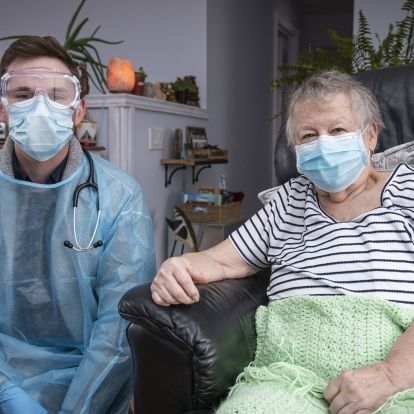
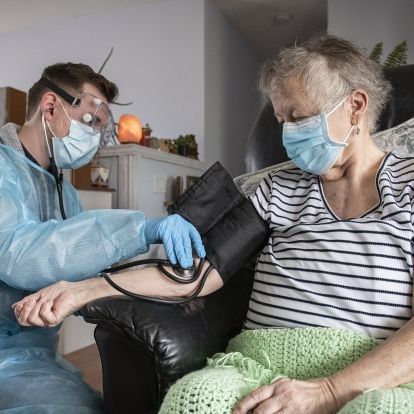
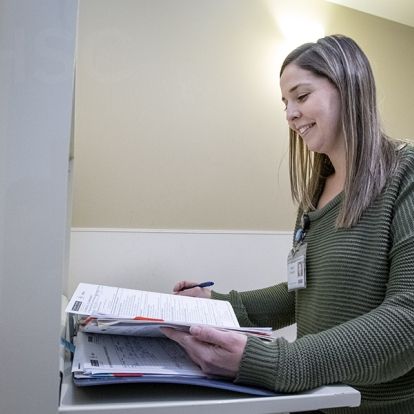
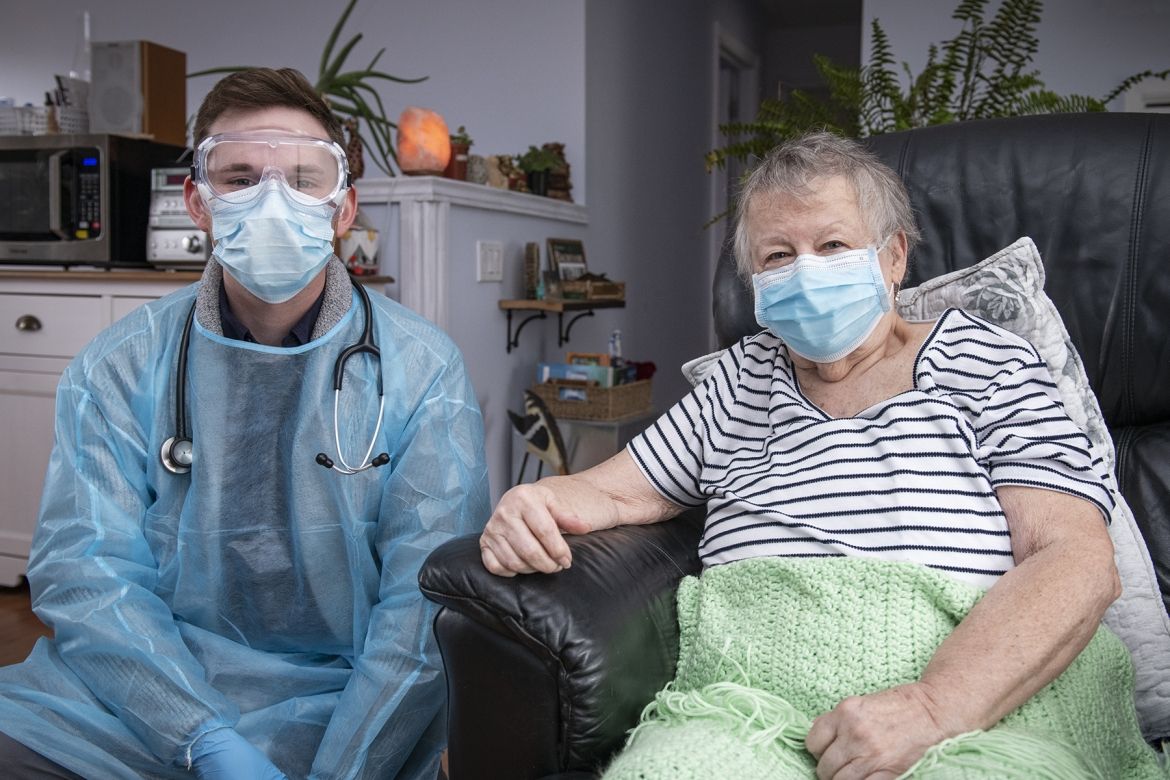
Nurse Mathew Calhoun with KHSC@Home patient Merrietta (Rita) Peters, who says, “As soon as I came home, everyone I needed was here. It has been amazing, and has taken the pressure off of my daughter tremendously.”
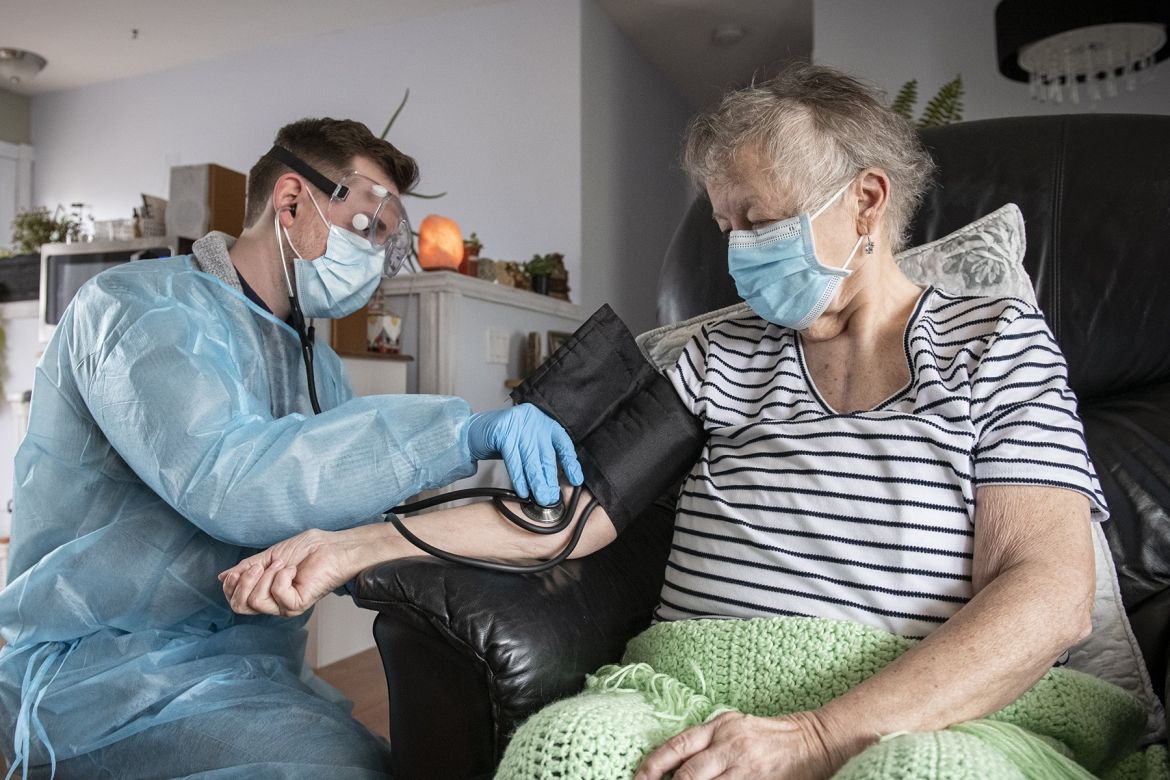
KHSC@Home patient Merrietta (Rita) Peters says nurse Mathew Calhoun is like a member of her family.
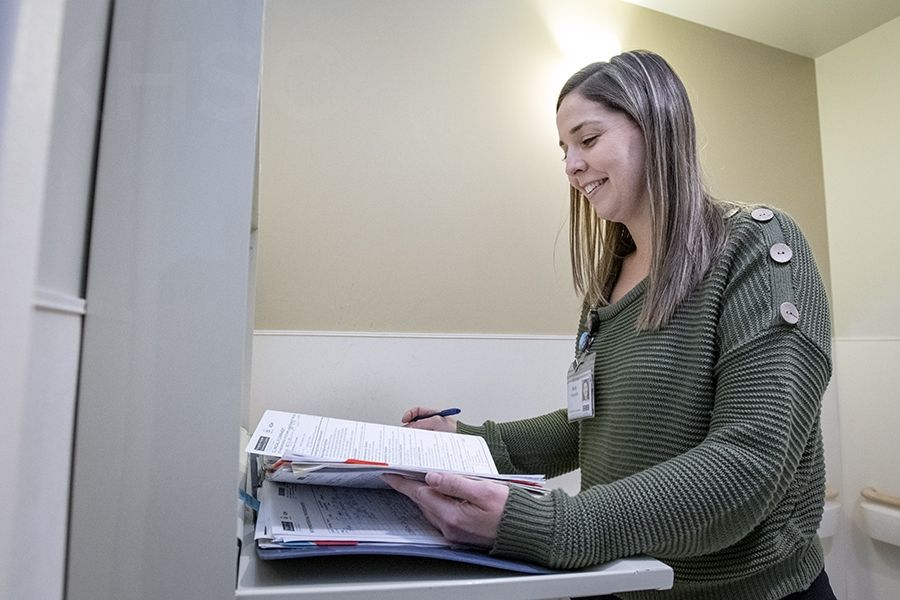
“There really is no place like home, especially when people don’t require specialized hospital care and need to regain their full strength and vitality,” says Holly Krawaitis, the KHSC@Home coordinator and registered nurse who is working with patien



